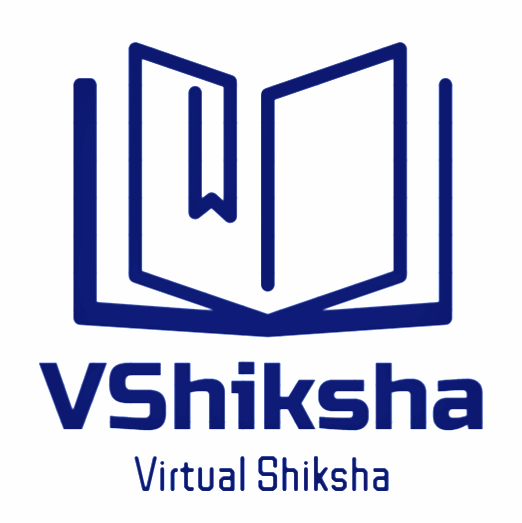Cracking the Boards: Tips for Preparation of Class 12th Board Exams
admin

Preparing for the CBSE Class 12th exams can be a challenging task, but with the right strategies and mindset, you can excel. Here are some comprehensive tips to help you prepare effectively:
1. Understand the Syllabus and Exam Pattern
- Familiarize Yourself with the Syllabus: Go through the entire syllabus and understand the weightage of each topic.
- Know the Exam Pattern: Understand the type of questions that are asked in the exams, such as multiple-choice questions, short answer questions, and long answer questions.
2. Create a Study Plan
- Set Realistic Goals: Break down your syllabus into manageable chunks and set daily, weekly, and monthly goals.
- Allocate Time Wisely: Prioritize subjects and topics based on your strengths and weaknesses.
3. Study Material and Resources
- Use NCERT Books: These are the primary textbooks recommended by CBSE and cover the entire syllabus.
- Reference Books: Use additional reference books for a deeper understanding of complex topics.
- Online Resources: Utilize online platforms for video lectures, practice tests, and interactive learning.
4. Practice Regularly
- Solve Previous Year Papers: This helps you understand the exam pattern and the type of questions that are frequently asked.
- Take Mock Tests: Simulate exam conditions by taking timed mock tests to improve your speed and accuracy.
5. Focus on Weak Areas
- Identify Weak Subjects: Spend extra time on subjects or topics where you are weak.
- Seek Help: Don’t hesitate to ask teachers or peers for help if you are struggling with a particular topic.
6. Revision Techniques
- Regular Revision: Make it a habit to revise regularly to keep the information fresh in your mind.
- Use Flashcards: Create flashcards for important dates, formulas, and key concepts.
- Summarize Notes: Write summaries of each chapter to reinforce your understanding.
7. Time Management
- Practice Time Management: Learn to manage your time effectively during the exam to ensure you can answer all questions.
- Avoid Procrastination: Stick to your study schedule and avoid last-minute cramming.
8. Stay Healthy
- Balanced Diet: Eat a balanced diet to keep your energy levels up.
- Exercise Regularly: Physical activity helps reduce stress and improves concentration.
- Adequate Sleep: Ensure you get enough sleep to keep your mind fresh and alert.
9. Stay Positive and Motivated
- Set Achievable Goals: Celebrate small achievements to stay motivated.
- Stay Positive: Maintain a positive attitude and believe in your abilities.
10. Exam Day Tips
- Read Instructions Carefully: Read the exam instructions carefully before starting.
- Plan Your Answers: Plan how you will answer the questions to manage your time effectively.
- Stay Calm: Stay calm and composed during the exam to avoid silly mistakes.
11. Subject-Specific Strategies
Science Stream (Physics, Chemistry, Biology, Mathematics)
- Physics: Focus on understanding the concepts rather than rote learning. Practice numerical problems regularly and make sure to revise important formulas and derivations.
- Chemistry: Divide your study time between Physical, Organic, and Inorganic Chemistry. Practice chemical equations and reactions, and understand the underlying principles.
- Biology: Concentrate on diagrams and their labeling. Make concise notes for quick revision of important processes and cycles.
- Mathematics: Practice is key. Solve different types of problems and focus on understanding theorems and their applications. Time management is crucial during the exam.
Commerce Stream (Accountancy, Business Studies, Economics)
- Accountancy: Practice solving problems from different chapters. Understand the concepts of balance sheets, profit and loss accounts, and cash flow statements.
- Business Studies: Focus on understanding the concepts and their real-life applications. Make short notes for quick revision.
- Economics: Understand the graphs and their interpretations. Focus on both Microeconomics and Macroeconomics and practice writing precise answers.
Humanities Stream (History, Geography, Political Science, Sociology)
- History: Focus on understanding the chronology of events and their significance. Make timelines to remember important dates and events.
- Geography: Practice map work regularly. Understand the physical and human geography concepts and their interrelations.
- Political Science: Understand the political theories and their applications. Keep up with current affairs to relate them to your syllabus.
- Sociology: Focus on understanding the sociological theories and their applications. Make notes of key sociologists and their contributions.
12. Practical Exams
- Prepare Thoroughly: Practical exams are as important as theory exams. Make sure you understand the experiments and their procedures.
- Maintain a Neat Record: Keep your practical record book up to date and neat. This can fetch you good marks.
- Viva Preparation: Be prepared for the viva questions. Understand the concepts behind the experiments you performed.
13. Project Work
- Choose a Relevant Topic: Select a topic that interests you and is relevant to your syllabus.
- Research Thoroughly: Gather information from various sources and make sure your project is well-researched.
- Presentation Matters: Present your project neatly and systematically. Use charts, graphs, and visuals to make it more appealing.
14. Time Management During Exams
- Read the Question Paper Carefully: Take the first 15 minutes to read the question paper thoroughly and plan your answers.
- Prioritize Questions: Start with the questions you are most confident about. This will boost your confidence and save time.
- Keep Track of Time: Allocate time to each section and stick to it. Leave some time at the end for revision.
15. Stress Management
- Stay Relaxed: Practice relaxation techniques like deep breathing, meditation, or yoga to stay calm.
- Take Breaks: Don’t study continuously for long hours. Take short breaks to refresh your mind.
- Stay Positive: Maintain a positive attitude and believe in your preparation.
By incorporating these specific strategies into your study plan, you can enhance your preparation for the CBSE Class 12th exams and achieve excellent results. Good luck!
- Log in to post comments
